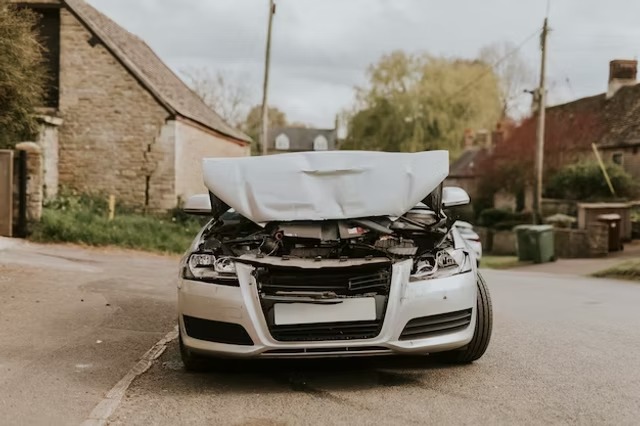Wrecked Cars: Should You Buy One and Rebuild It?

In the world of used cars, few terms spark as much curiosity — and caution — as wrecked cars. These vehicles have been in accidents and may carry damage ranging from minor cosmetic dents to complete structural destruction. Still, many buyers seek them out for one big reason: savings.
But are wrecked cars really worth buying? Can you actually turn a damaged vehicle into a reliable ride? Or are you just buying someone else’s headache?
This guide explores what qualifies a car as wrecked, how to shop for one wisely, and whether rebuilding a wrecked car is a good investment or a financial trap.
What Is a Wrecked Car?
A wrecked car is any vehicle that has suffered crash damage. That might mean a fender bender, a major collision, or anything in between. Most wrecked cars sold to the public fall into one of three categories:
1. Repairable Wrecks
These cars have visible damage but can be fixed. The engine, transmission, and structural components are mostly intact.
2. Total Loss Vehicles
Insurers have deemed the repair cost too high compared to the car’s value. These often carry a salvage title.
3. Parts-Only Cars
Vehicles that are too badly damaged to be repaired — often labeled non-repairable or certificate of destruction.
The key is determining which category a specific vehicle falls into — and what your plans are.
Why Are Wrecked Cars Sold?
There are several reasons wrecked vehicles end up for sale:
● Insurance write-offs — Cars declared a total loss are auctioned off
● Owner sales — Some owners choose not to repair their vehicles and sell them privately
● Dealership disposal — Dealers offload trade-ins or damaged inventory
● Auction inventory — Salvage auto auctions offer wrecked vehicles to the public and to professionals
These cars are often priced well below market value — but not always for good reasons.
Why Do People Buy Wrecked Cars?
The answer is simple: price and potential. Here’s who’s buying wrecked cars and why.
1. DIY Rebuilders
Skilled hobbyists buy wrecked vehicles to repair at home. They save on labor and may end up with a car worth far more than what they paid.
2. Used Car Flippers
Entrepreneurs with access to parts and labor buy low, fix up vehicles, and sell them for profit.
3. Mechanics and Body Shops
These professionals often repair cars themselves or use them for parts to service customer vehicles.
4. Parts Buyers
If a car is too far gone, its individual components — engine, transmission, wheels, body panels — may still hold significant value.
5. Exporters
In many countries, title branding isn’t enforced, making wrecked cars viable for overseas resale.
Pros of Buying a Wrecked Car
1. Deep Discounts
Wrecked cars are often sold at 30%–70% below market value, offering huge potential savings if repairs are affordable.
2. Access to Better Models
You may be able to buy a newer or more luxurious vehicle than you could afford in clean-title condition.
3. Parts Potential
A wrecked car with a working engine and drivetrain can be a great donor vehicle — especially for hard-to-find models.
4. Profit Opportunity
Rebuilt cars can fetch strong resale prices in the right markets if repaired correctly and documented well.
5. Learning Experience
Repairing a wrecked car is a great way to build hands-on mechanical skills.
Cons and Risks
Buying a wrecked car isn’t without risk. Here’s what to watch out for.
1. Hidden Damage
What looks like minor cosmetic damage could hide frame issues, electrical faults, or engine problems.
2. Expensive Repairs
Even basic parts like airbags or body panels can cost thousands. Paint and labor often push repair costs higher than expected.
3. Title Branding
Most wrecked cars carry salvage or rebuilt titles. These reduce resale value and can make registration or insurance more difficult.
4. Limited Financing
Most lenders won’t finance salvage vehicles. You’ll need to pay in cash or secure alternative financing.
5. Insurance Challenges
Some insurers won’t fully cover rebuilt cars, or may charge high premiums. Others won’t offer comprehensive coverage at all.
How to Evaluate a Wrecked Car Before Buying
Before you take the plunge, do your homework.
1. Review Photos Carefully
Look at the vehicle from all angles. Check for:
● Frame misalignment
● Airbag deployment
● Broken suspension components
● Engine bay damage
● Bent axles or wheels
2. Check the Title
● Salvage title: Indicates the car was a total loss
● Rebuilt title: Vehicle was repaired and re-inspected
● Non-repairable: Cannot be titled for road use
Know what’s allowed in your state or country.
3. Run a VIN Report
Use the vehicle’s VIN to check:
● Past accident history
● Odometer readings
● Title transfers
● Stolen status
● Recalls
This helps you spot potential red flags before bidding or buying.
4. Ask for a Damage Report
Some sellers — especially auctions — provide repair estimates or condition reports. These help you assess what’s needed to fix the car.
5. Inspect In-Person When Possible
Photos can hide flaws. If you can view the car in person, check:
● Engine starts and runs
● Wheels roll freely
● Fluid leaks
● Rust or rot around damaged areas
● Functionality of doors, trunk, and hood
Where to Buy Wrecked Cars
Wrecked vehicles are sold through:
● Online salvage auctions — Many platforms list thousands of wrecked vehicles daily
● Local auto auctions — Some allow public bidding
● Private sellers — Facebook Marketplace, Craigslist, and forums
● Body shops — Occasionally sell abandoned or unrepaired customer cars
● Insurance companies — Sometimes sell directly through liquidation sites
Choose reputable sellers and verify as much information as possible.
Rebuilding a Wrecked Car: What to Expect
If you’re buying a wreck to rebuild it, here’s what the process usually involves:
1. Disassembly and Damage Assessment
Remove damaged parts and inspect the frame, suspension, and internal components.
2. Structural Repairs
Frame straightening or alignment may be required — this must be done by a professional shop in most cases.
3. Mechanical Repairs
This could include engine work, transmission fixes, or replacing suspension and steering components.
4. Cosmetic Restoration
Body panels, bumpers, lights, paintwork, and trim may need replacing or refinishing.
5. Title Re-Certification
Depending on your state or country, you may need to pass a salvage inspection before registering the vehicle.
6. Insurance and Registration
Be prepared to provide documentation and repair receipts for insurance and DMV purposes.
When Buying a Wrecked Car Makes Sense
It might be a smart move if:
● You have repair skills or access to cheap labor
● The car has limited, clearly identified damage
● The purchase price is far below market value
● You understand title laws in your state
● You’re buying for a project, not daily use (initially)
It’s probably not worth it if:
● You need a reliable daily driver right away
● You’re unfamiliar with repair work or auctions
● You’re uncomfortable dealing with title branding
● You don’t have extra money to cover unexpected repairs
● The damage is structural or includes flooding
Final Thoughts
Wrecked cars offer real potential — but only for the right buyer. They’re not a shortcut to luxury or performance without cost, but they are a viable option for mechanically inclined individuals or savvy investors.
If you’re patient, prepared, and do your research, you could end up with a great car at a fraction of the price. Just remember: a wrecked car is only a deal if you can actually rebuild it — safely, legally, and affordably.




